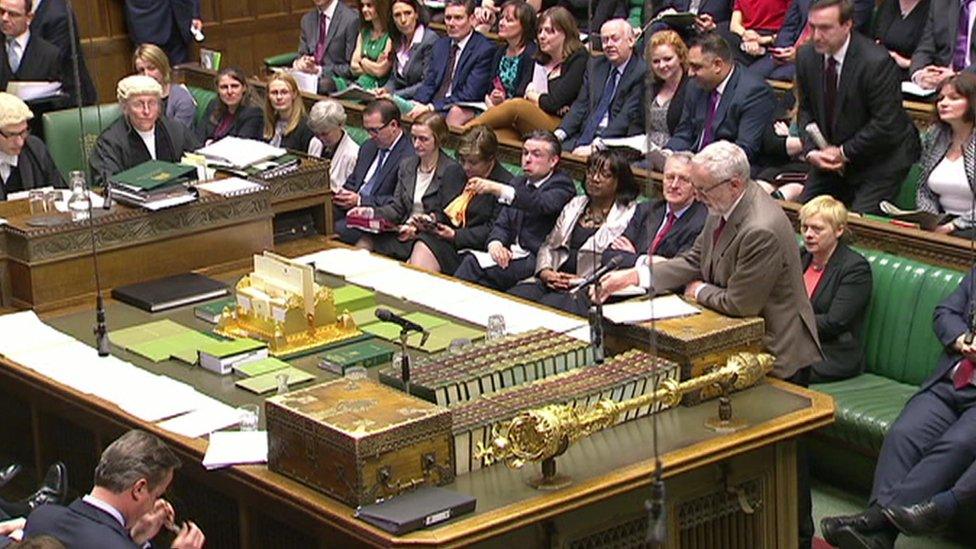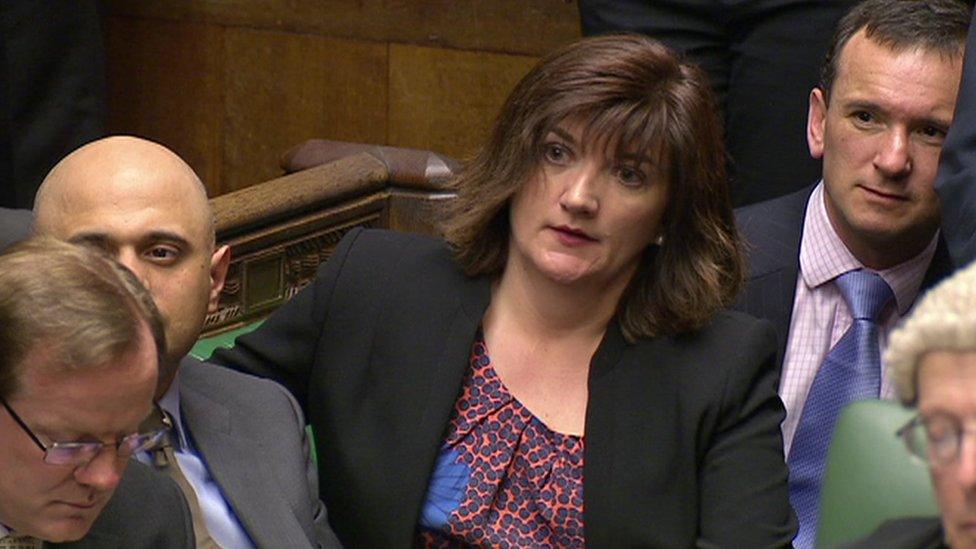PMQs: Cameron vows to 'finish the job' on academies
- Published
All six of the Labour leader's PMQs questions to David Cameron were about reorganising English schools
David Cameron has defended controversial plans to force all state schools in England to become academies, saying it is time to "finish the job".
During Prime Minister's Questions, Labour's Jeremy Corbyn cited opposition to the "top down reorganisation" from teachers, parents and some Tory MPs.
He said good schools should not be distracted by "arbitrary changes".
Sources said the government was likely to guarantee no small rural schools would close as a result of the shakeup.
BBC political editor Laura Kuenssberg has been told ministers are having lots of conversations with Conservative MPs to tackle their concerns - but are not intending to back down on the policy.
Academies, which started under the Labour government, are funded directly by central government and are independent of local authority control.
In March's Budget, the government announced the move to force all of England's state schools that have not yet converted to academies to do so.

Jeremy Corbyn said the plans were a "top-down reorganisation"

Education Secretary Nicky Morgan has suggested the government will listen to criticism of its academies proposal
Some Conservative MPs have questioned the wisdom of forcing all schools to make the switch, which has has been outlined , externalin a white paper, in particular the impact on small rural schools if academy chains are not willing to take them over.
Conservative backbencher Andrew Percy said it was "a very hard sell" to tell good or outstanding schools they must change their governance arrangements.
"The government needs to do a lot more before it's convinced myself and a lot of backbenchers that forcing academisation is necessary," he added.
The enforced change has also been opposed by teaching unions and the Local Government Association - which said the government had highlighted improvements in the primary sector, where 85% of schools are council-maintained.
Education Secretary Nicky Morgan has said critics of the proposal have raised "important issues".
Mr Corbyn asked the PM to explain "why good school leaders should focus their time and resources not on educating children but on arbitrary changes imposed from above".
Mr Cameron said schools that were performing well had "nothing to fear" from being converted to academies.
The reform had been "hugely effective" he said, adding: "We have seen massive improvements in our schools because of academies and we say let's get on with it, finish the job and give all our children a great opportunity."
Schools Minister Nick Gibb told BBC News the plan for all schools to become academies by 2022 was about "spreading best practice".
Mr Gibb said this was a "voluntary process" but added that as more schools convert it would not be viable to have two systems of governance "operating in parallel".
Meanwhile, the Department for Education's accounts were criticised by a financial watchdog.
National Audit Office head Amyas Morse said the department had failed to properly account for spending by academies, saying there was not enough accurate information for Parliament to account for the public money.
The NAO said there was a level of "misstatement and uncertainty" which meant the truth and fairness of the accounts, which have just been published, could not be verified.